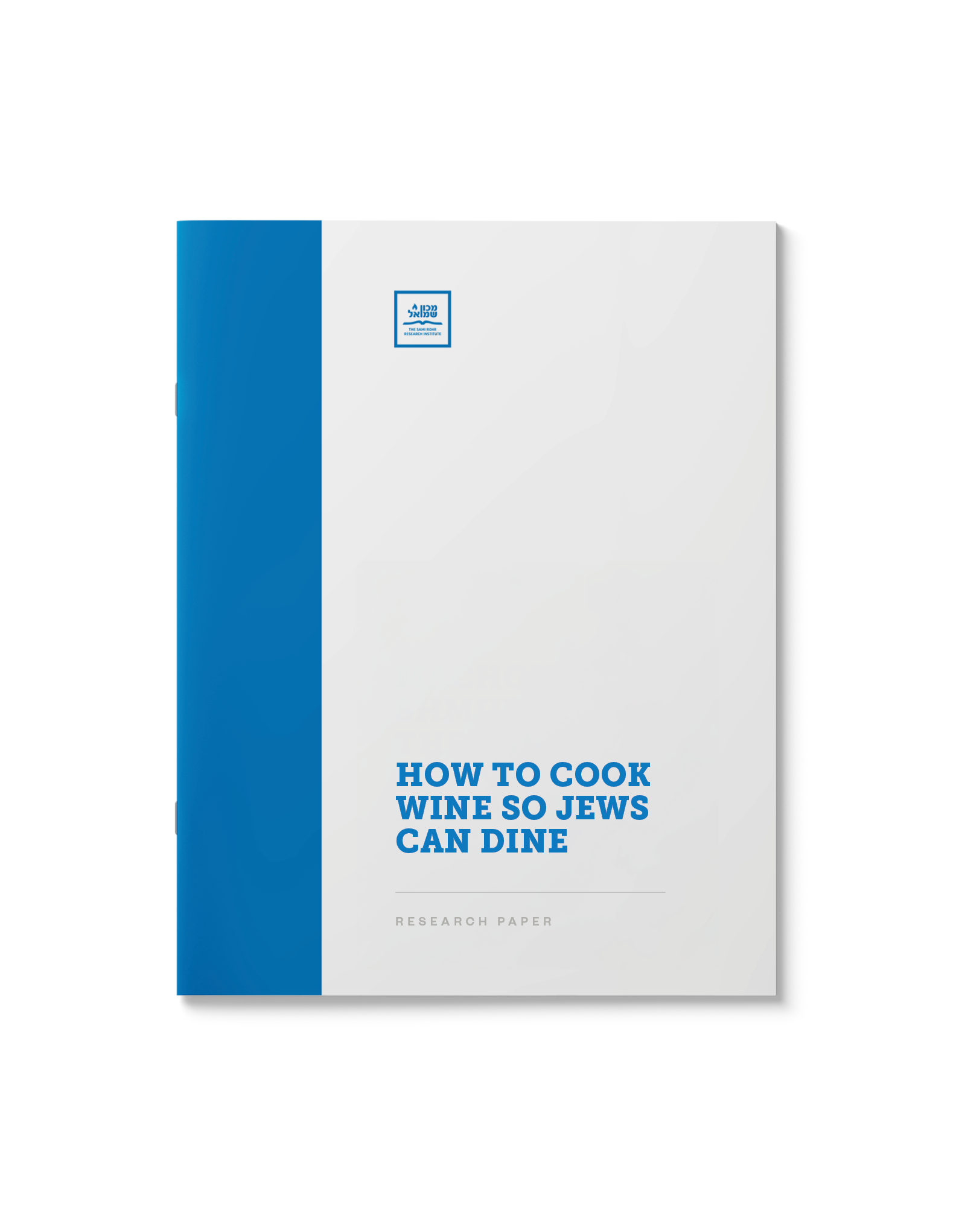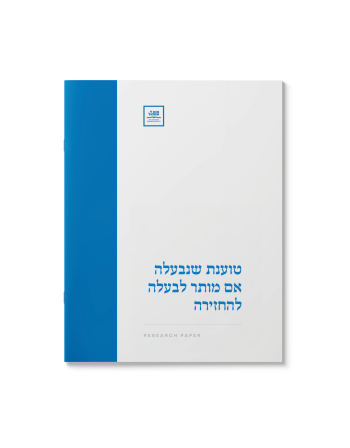How to Cook Wine So Jews Can Dine
$39.00
It has saved many a Shabbos meal and avoided much embarrassment. But how exactly does yayin mevushal address the problem of yayin nesech? What is the technical definition of mevushal? A behind-the-scenes look at kosher wine production and its laws.
| Language | English |
|---|---|
| Paper Type | Research Paper |
| Pages | 16 |
Related Products
Your hostess has labored to prepare a tongue tantalizing gourmet dinner, but alas – her fine china dishes were never ritually purified by immersion in a Mikvah. How do you navigate this delicate situation?
Everyday life presents many instances where one ought to wash their hands: cutting nails, using the restroom, taking a nap, to name just a few. A review and commentary on the range of activities that require netilas yedayim.
Food makes the world go around. But for the Jewish consumer there’s a whole other angle to consider: is the food Kosher?
To the discerning Jewish palate, the question also relates to the rationale behind the mitzva. Are there material or spiritual benefits to be had from its fulfillment or must it be carried out only because G-d has so ordained it?
Jewish law regulates the consumption of food cooked by a Gentile. Is microwaving considered cooking for this purpose? This paper
illustrates how the ancient kashrut laws apply to modern technologies.
For some, only a serious serving of Cappucino or Esspresso can pack in a much needed energy boost for the day.
With 11,962 Starbucks locations throughout the United States, the prospect of buying coffee from your local coffee shop raises some important halachic questions.
Part I:
Does a coffee prepared by a non-Jewish barista involve an issue of Bishul Aku”m? May one drink inside the coffee shop, or only to-go? What was the Arizal’s unique take on the subject? Also: what is the proper Bracha on coffee beans?
(Hebrew)
Does making tztitis at night make them invalid? What was the
position of the Rebbeim in this regard?
המאמר שלפנינו סוקר את פרטי צורת עשיית הטלית ועטיפתו, ואת צורת התפילין ולבישתם על פי מנהג חסידי חב״ד, אשר יסודותם בהררי קדש של תורת הסוד.
A detailed look at the history and laws of yayin nesech. Can an irreligious Jew render wine yayin nesech? Is pouring wine part of the prohibition? What difference does pasteurization make?
Scientific advances have unlocked some of the ‘source code’ of living organisms, where by splicing genes from, say, arctic salmon into strawberries, or mice into chickens, we can produce strains of plants and animals which grow better, are more resilient, and are more beneficial economically or otherwise.
While discussion abounds regarding the long-term health effects of these developments, what is the Torah’s view on such manipulation? Do the ethos of kilayim preclude meddling in G-d’s domain? Or does the command to “fill the earth and subdue it” (Bereshis 1:28) provide the ethical mandate to do just that?
What are the Halachic ramifications? Is the act of implanting the gene –in flora or fauna- a violation of kilayim? What is the kosher status of the resulting hybrids? Does the status of the donor carryover to the recipient? What if the transferred genes affect the presence of the traditional kosher signs? (a tuna with no scales, a shark with scales)? Is an Esrog which has been thus modified considered a Murkav, disqualifying it from use for the Mitzvah?
Is there a spiritual effect? Do the characteristics of those animals which the Torah deems negative carry over into the new creature? Would consuming this (otherwise Kosher) creature bring spiritual coarseness (timtum halev)?
A collection of Tshuvos and articles in Hebrew and English.
“Do not cook a kid in its mother’s milk.”
Traditional Kosher cooking avoids all forms of meat and milk combinations, including poultry.
What is the origin of this prohibition and when did it begin?
כבוד ההורים היא מצוה גדולה וחשובה עד מאד. אך ממבט ההלכה, מהי הגדרת המצוה והמגבלות שלה? מהו נכלל בכבוד או במורא? למען יאריכון ימיך.






![The Kosher Diet - Healthy in Body and Soul [New!]](https://catalog.myjli.com/wp-content/uploads/2025/05/SAMSTKD-350x448.png)








